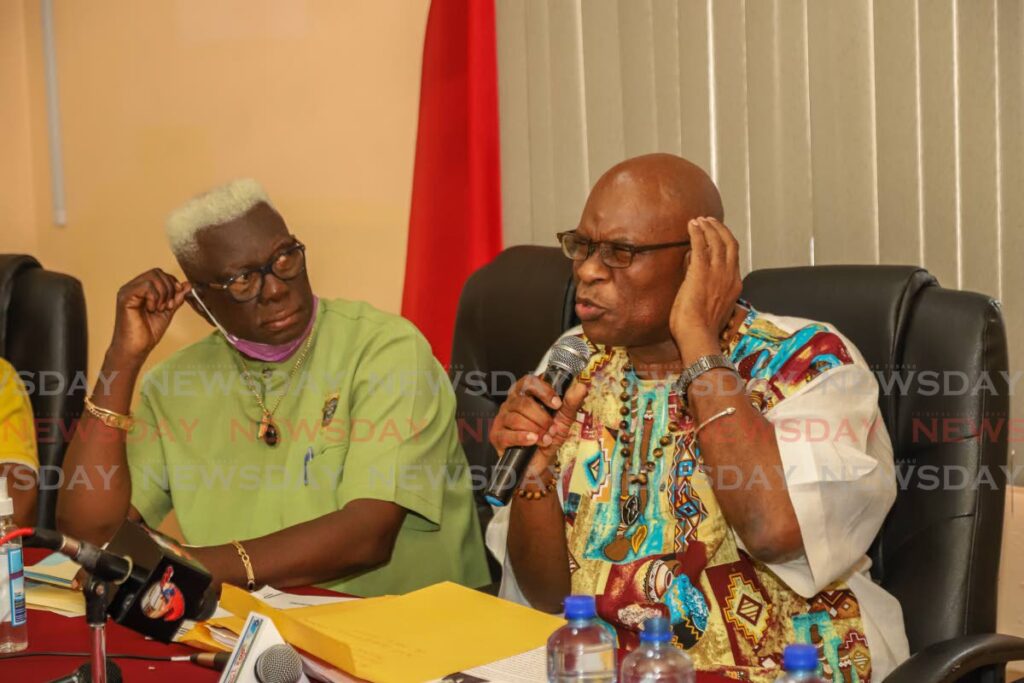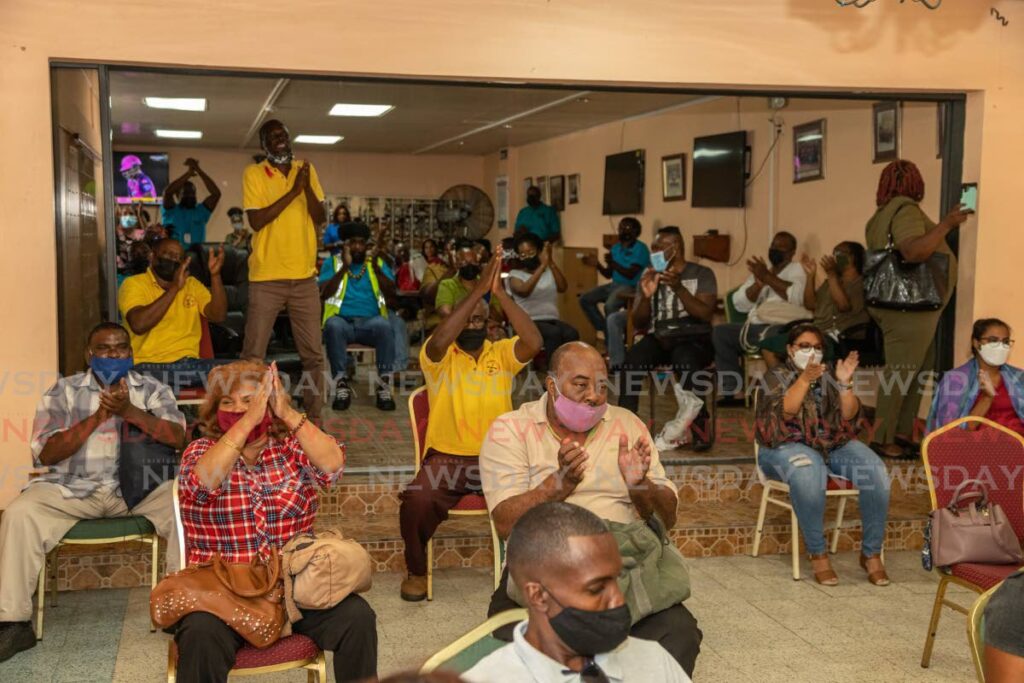Trade unions vow to push back on 2% offer: 'It's economic abuse'

National Trade Union Centre (Natuc) general secretary Michael Annisette says a lot of strategies were in place for a “sustained expression of workers’ disaffection of the economic violence and abuse” being attempted by the government.
The first of these strategies is expected to be a march around Port of Spain from Memorial Park to the Chief Personnel Officer’s (CPO) office in Woodbrook to the Financial Complex on Independence Square on May 27.
On May 16, during the debate on the Variation of Appropriation) (Financial Year 2022) Bill, 2022, Finance Minister Colm Imbert announced TT achieved a surplus of $1.98 billion at the end of April. He said one of the things the government would do with the increased revenue was to pay increased wages to public servants once negotiations between the unions and CPO concluded.
Then, on Thursday, CPO Dr Daryl Dindial offered hourly, daily and weekly-rated workers of the Central Government, the Tobago House of Assembly and municipal corporations 0-0-0-0-1-0-0-1 for salary increases from January 2014 to January 2021.
Annisette said unions would go back to the negotiation table but they wanted to make it clear that they rejected any attempts of wage constraints when there are no control mechanisms that address increase in prices and the cost of living had been increasing.
“That offer of two per cent over an eight-year period demonstrates an insensitivity that is beyond description and everybody in TT knows what has happened based of the cost of living and everything else.
“For a government to treat police officers, the firemen, health care workers, port workers, bus drivers, MTS workers, WASA workers, government daily rated workers, public servants this way is a clear demonstration of the disregard and disrespect that this government has for the working class in TT.”
He said trade unionist understood the “economic realities” of the country but they had to craft a better future for TT. One where workers were treated as human beings, their contributions were respected and they did not have to live from pay cheque to pay cheque.
He asked how a two-cent on the dollar increase could be justified when gas, flour, meat and other essential goods and services had increased significantly.
“This is a crime against the farmer and the business community too. If workers do not have the purchasing power to maintain a standard of living, who suffers? As a consequence of that a lot of business had to shut down. When you engage in wage restraints and low wages, you destroy your economy.”
Instead, he said sustainable jobs, decent living wages and job-led growth had to be part of the country’s economic strategy.
According to Annisette, Dindial said he had limited funds to share among all, asked the union for proposals concerning the allowances they wanted, said they could not merge cost of living allowance, and that the proposals had to be current.

“How could that be acceptable to any trade union or workers. There are workers who would have left during the period who had a legitimate expectation to get some sought of increase to their pension rights and benefits and gratuitous payment.
“Now you are telling us, as a union, that all these workers who would have made all those sacrifices over all those years, must go home without a black cent.”
“It’s not that we are greedy or don’t understand the financial issues but you have to respect the work people put out and the risks they were exposed to as essential workers while others were on lockdown. People died! That doesn’t mean anything to you?”
National Union of Government and Federated Workers (NUGFW) president general James Lambert explained that the unions were working with three outstanding periods of 2014-2016, 2017-2019, 2020-2022.
He claimed Dindial told them the negotiation would be for two periods so the union’s proposals were 15 per cent for 2014-2016 and 2017-2019. But, he said, the CPO “threw aside” their proposals and made the eight-year offer as if it were the final offer.
“The manner in which he (Dindial) came to us, the offer seems to be final. He said any amendment to be made will not be an increase on anything.”
“So we will be writing in the upcoming week and officially indicating our objection, reiterating the previous proposals and requesting another meeting. Because negotiations are normally for three-year periods so we were amazed when they unilaterally went and proposed an eight-year period.”
Public Services Association (PSA) president Leroy Baptiste said his union initially proposed 15 per cent for the 2014-2016 period. But the proposal was modified it to 25 per cent when the union met with the CPO on May 9 and the eight-year period was revealed.
He explained that, according to the Central Statistical Office (CSO), between 2014 and 2021, food prices increased by 44 per cent, the price of super gasoline increased by 121 per cent, diesel by 161 per cent, maxi taxi fares by 43 per cent, and rent by ten per cent.
Since the role of a union was to protect the purchasing power of the workers and help them maintain their standard of living, he said 25 per cent was not “out of this world.”
“So when you hear people say the union asked for 25 as though we are asking for something out of this world, it is based on how the cost of living has impacted you salary, and we are now trying to fill in that gap by way of that increase.
“This is especially for the people in the low income bracket where the vast majority of their income is used just to pay rent and put food on the table. If they don’t get the increase they have to find that money somewhere – a side hustle, who pulling bull, taking risks, they have to borrow from a friend to pay back another friend, and of course, criminal enterprise is on the rise.”
He said people were demoralised when they could not met their basic needs, and government liked to have workers in that state of desperation so people could accept anything offered to them.
He added that, because of the state of people’s salary, you people especially no longer even contemplated home ownership. This resulted in 30- and 40-year old adults living in their parents’ homes, as well as the proliferation of guest houses.

Comments
"Trade unions vow to push back on 2% offer: ‘It’s economic abuse’"